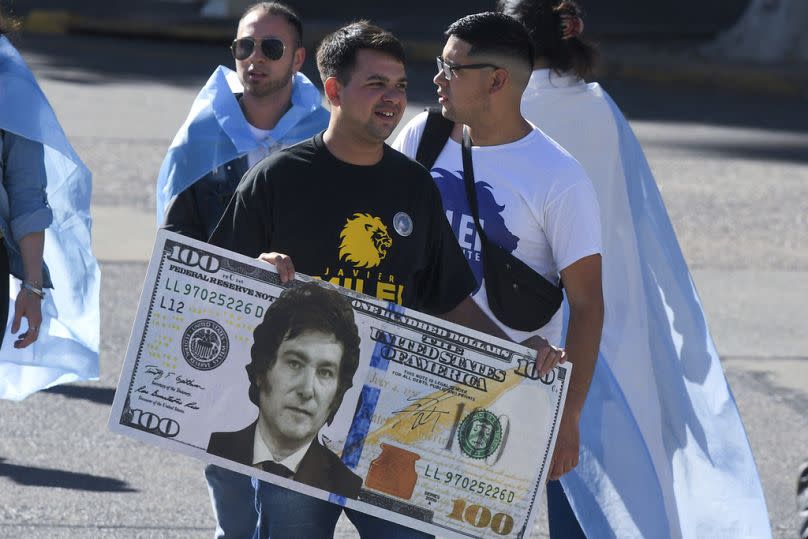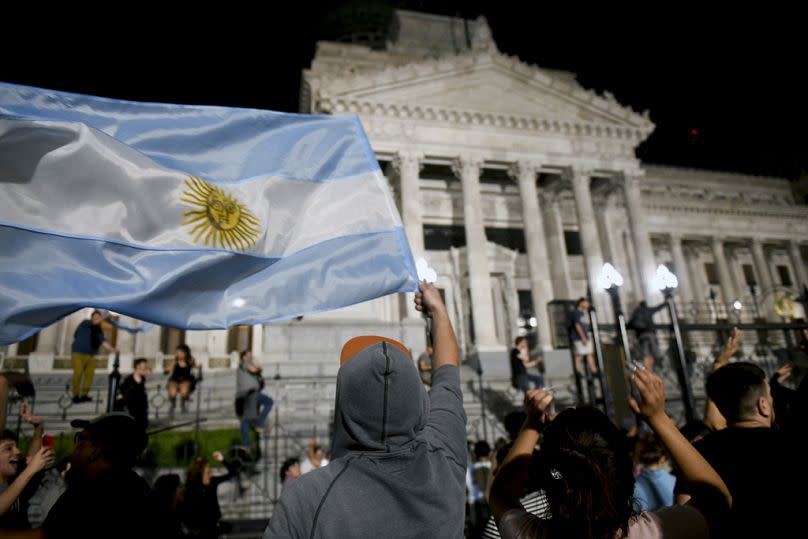Argentina’s far-right libertarian President Javier Milei issued a mega decree midweek that, for the first time in any country, changed or eliminated 366 economic rules.
None of its previous leaders, democratically elected presidents and dictators, had attempted to dismantle the system on such a massive scale.
This is also what Milei promised on the campaign trail; He was brandishing a chainsaw to symbolize his bid to cut public spending and his response to Argentina’s triple-digit inflation after decades of fiscal mismanagement.
Although Congress still has the power under Argentine law to cancel Milei’s program, many worry that his deregulatory decisions could make things worse in the South American country of 45.8 million people.
What will Millei’s decree change?
Ten days after taking office and on the eve of the public holidays, Milei submitted the DNU, or “necessary and urgent” decree, to relax some rules governing the country’s economy as annual inflation reached 160%.
One of the big changes will be the removal of all rules between tenant and landlord, such as laws that put limits on rent increases.
In recent years, landlords have increasingly priced their properties in US dollars to avoid being stuck with rental income long left behind by rising inflation. This has become a nightmare for tenants in a country where access to the dollar is tightly controlled. Deregulation will now make it legal to collect rent in dollars.

Milei also relaxed labor laws, with the trial period for new employees being increased from three months to eight months. Compensation laws for unjust dismissal have been changed in favor of companies and plans to renegotiate employment contracts that have been in place since 1975.
He also lifted restrictions on exports and said the internet market would be liberalized.
Milei has also jettisoned rules preventing the privatization of state enterprises and has already set his sights on national airline Aerolineas Argentinas and oil company YPF; It dropped the name of Elon Musk’s Starlink as the company intends to take over the country’s satellite system, ARSAT.
He also took action to limit the right to strike in the constitution.
Additionally, he has moved to eliminate all subsidies for the public transport company, which could see an immediate tenfold increase in ticket prices in one of the world’s most urbanized countries.
Protesters have ‘Stockholm Syndrome’
Milei, an outsider whose rise to the top office stunned much of the country, blames the interventionism and protectionism of previous governments for stifling the economy.
Before the decree was announced, the new government had devalued the Argentine Peso by more than 50% and announced major cuts in generous state subsidies for fuel and transportation, starting in January.
“The goal is to begin the path of rebuilding the country, to restore freedom and autonomy to individuals, and to begin to eliminate the multitude of regulations that stall, inhibit and impede economic growth,” Milei said.
Regarding those protesting his measures, he said: “There may be people suffering from Stockholm syndrome. They have fallen in love with a model that impoverishes them.”


The opposition, who was recently expelled from the government, has criticized Milei for the decree and sees it as a way to overcome the lack of a majority in Congress.
Milei’s Libertad Avanza party, just two years old, holds only 40 of 257 seats in the lower house and seven of 72 seats in the Senate.
“This is not the way. Send reforms as bills. Do not be afraid of democratic debates,” said German Martinez, parliamentary speaker of the Peronist coalition Union for the Fatherland.
Constitutional lawyer Emiliano Vitalani told AFP that the country’s highest law says that “in principle, laws cannot be changed by decree and the president cannot replace Congress.”
Political scientist Lara Goyburu said the decision “crosses all borders and decides many issues that require political agreement from Congress and the states.”
Vitalini said the resolution could be overturned if rejected by both houses of Congress. Otherwise, it will come into force on December 29.
“The president has made a huge bet, and his success will depend on his ability to gain legislative support, which has been unknown until now,” constitutional lawyer Alejandro Carrio said in a column in Argentina’s La Nacion newspaper.